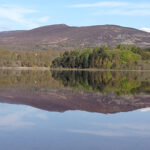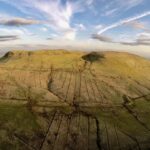Built infrastructure, hunting and climate change linked to huge migratory bird declines
Migratory birds are declining globally because of the way that humans have modified the landscape over recent decades – according to new research from...
Canterbury suburbs were home to some of Britain’s earliest humans, 600,000-year-old finds reveal
Archaeological discoveries made on the outskirts of Canterbury, Kent (England) confirm the presence of early humans in southern Britain between 560,000 and 620,000 years...
People are smarter eaters than previously thought
New research has revealed that humans moderate the size of energy-rich meals they consume, suggesting people are smarter eaters than previously thought.
The findings, led...
One in 500 men carry extra sex chromosome, putting them at higher risk of...
Around one in 500 men could be carrying an extra X or Y chromosome – most of them unaware – putting them at increased...
Climate change and human exploitation to blame for historic decline in Atlantic Salmon
Research has revealed that an abrupt change in climate conditions in the North Atlantic around 800 years ago played a role in a decline...
Bad dreams could be early warning of Parkinson’s disease
Older adults who start to experience bad dreams or nightmares could be exhibiting early signs of Parkinson’s disease, say researchers.
A new study, published in...
Study sheds light on life beyond Rome’s frontier
Archaeologists from Edinburgh have discovered more than 100 Iron Age settlements in south-west Scotland that date from the time of Roman occupation.
The team has...
Gravity-defying spike waves rewrite the rule book
Researchers studying wave breaking have found that axisymmetric ‘spike waves’ can far exceed limits that were previously thought to dictate the maximum height of...
App detecting jaundice in babies a success in first major clinical trial
A smartphone app that identifies severe jaundice in newborn babies by scanning their eyes could be a life-saver in areas that lack access to...
Discovery of ‘ghost’ fossils reveals plankton resilience to past global warming events
An international team of scientists have found a remarkable type of fossilization that has remained almost entirely overlooked until now.
The fossils are microscopic imprints,...










